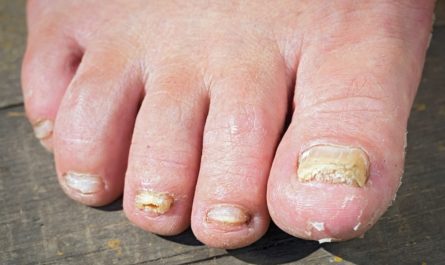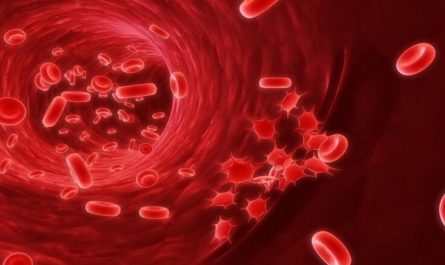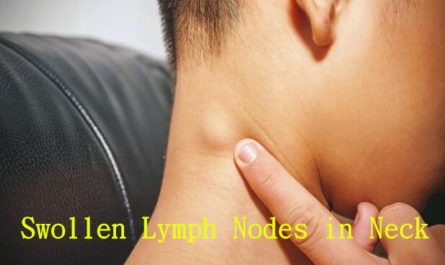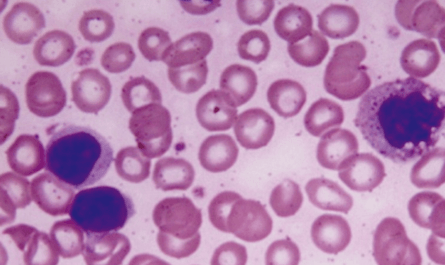Nerves are the major component of the nervous system. This nervous system is a collection of millions of tiny fibers that convey information to and from the brain. These nerves are all over the body, including muscles, joints, tendons, and even bones. When something presses or pinches a nerve, it causes a condition called a “pinched nerve.” This article discusses symptoms, causes, and treatment for a pinched nerve in the shoulder.
What is a pinched nerve in the shoulder and arm?
A pinched nerve is an ailment that happens when there is pressure or damage to a nerve. Its medical term is nerve compression or entrapment. A pinched nerve in the shoulder and arm can be very painful. It can also cause numbness, tingling, or weakness in the hand and fingers of the affected side.
When this condition occurs, we call it cervical radiculopathy or cervical radiculopathy (CRP). Degenerative changes in the cervical spine cause CRP, resulting in stiffness, pain, and numbness. These changes do not only affect the shoulder and arm but also render them useless sometimes. Nonetheless, the good news is that the symptoms of a pinched nerve go away with time.

What are Nerves in the Shoulder and Arm?
The shoulder girdle contains many nerves that send messages from the brain to the muscles and bones of the body. The shoulder also has a very complex structure with many nerves and muscles where a pinched nerve can occur.
Three nerves run through the arm. These nerves are
- The median nerve is the nerve that goes down the center of the peninsula.
- The ulnar nerve is the nerve that goes to the outer edge of the arm.
- The radial nerve: the nerve that extends along the inside of the arm and goes in line with the thumb.
Signs and symptoms of a pinched nerve in the shoulder and arm
- Pain is a major symptom of a pinched nerve in the shoulder and arm. The pressure on the nerves can supply a painful sensation to the affected body area. Pain can range from mild to severe depending on where and how severe it is.
- Sensitivity to touch is another symptom that may signal a pinched nerve in the shoulder and arm. You might feel numbness or tingling sensations, such as pins and needles, from your fingertips to your shoulders.
- Inability or unwillingness to lift your arm above your head.
- The inability to straighten the fingers
- A tingling sensation in the hand
- Dizziness or balance problems if the nerve is pinched too close to the brain.
- Inability to move one’s shoulder or hand
12 Common Causes of Pinched Nerves in Shoulder and Arm
People often complain about the pain in their shoulders and arms, but few know what exactly is causing it. The most common causes of a pinched nerve are:
1. Disc herniation syndrome
Disc herniation syndrome (herniation of a disc) is the most common cause of pain in the shoulder and arm. The disc becomes compressed between the bones, causing irritation and inflammation.
2. Carpal tunnel syndrome (CTS)
This disorder causes numbness, tingling, and discomfort in the hands and arms. It’s caused by pressure on the median nerve at the wrist caused by repetitive motions such as typing or using your smartphone.
CTS can also cause weakness or loss of feeling in your fingers. The symptoms are usually mild at first but can get worse. Some patients experience more severe symptoms, such as numbness in their fingers. If you have these symptoms, consult your doctor to rule out CTS before it worsens!
3. Posterior interosseous syndrome
Posterior interosseous syndrome (PIN) is a disorder of the soft tissues in the upper arm and shoulder. It occurs when there is irritation of the nerve that supplies blood to the muscles of the hand, wrist, forearm, and upper arm. The symptoms of the posterior interosseous syndrome vary, but the most common is numbness.
4. Sensory nerve symptoms
Sensory nerve symptoms are also associated with a pinched nerve in the shoulder and arm. They include tingling, numbness, burning, or sharp pains. Your entire arm, from the shoulder to the fingers, could feel numb. Tingling is more concentrated and only affects one part of your hand or arm.
5. Motor nerve symptoms
Motor nerve symptoms are more localized and will only affect the muscles around the affected nerve. They may include weakness, muscle cramps, spasms, and even paralysis.
6. Arthritis
Arthritis can cause pain in your shoulder and arm because of inflammation within the joint. The most common type of arthritis that causes degeneration of the cartilage in joints is osteoarthritis.
Osteoarthritis may affect one or more joints. It is not uncommon for patients with osteoarthritis to have pain in their shoulder and arm, but they may also have symptoms in other areas of their body.
Your doctor may recommend an X-ray or an MRI scan to show whether you have a bone spur or other problem within the joint. This will help your doctor determine the best treatment for you.
7. Tumors
Tumors, including cancerous tumors, can press on nerves and cause them to swell. They can also cause muscle weakness and pain. Tumors can also damage nerves if they have pressure on nerves that no longer function properly.
8. Muscle spasms
Muscle spasms can cause pinched nerves, which start by overusing or trauma, leading to inflammation. They feature involuntary contractions of muscle groups caused by pain or discomfort. These spasms occur through emotional stress, physical exertion, injury, or repetitive motion.
9. Ligament injury
Ligament injuries can cause a pinched nerve when someone undergoes strenuous activity. This strenuous activity includes horseback riding or weightlifting. It can cause damage to the connective tissue that holds joints together if not treated.
10. Trauma
Traumatic injuries such as fractures, sprains, and strains can result in pinched nerves if not treated. The damage will cause swelling around the affected area and lead to compression on one end of a nerve.
11. Bursitis
Bursitis is the swelling of a bursa, a fluid-filled sac that serves as a cushion between nearby bones and tendons. Bursae can occur in many areas, including the shoulder and elbow.
Bursitis causes inflammation, discomfort, and stiffness in the afflicted joint. It can also cause inflammation of nearby tissue. The most prevalent causes of bursitis are joint overuse or repetitive stress.
12. Rotator Cuff Tear
Rotator cuff muscles are crucial for maintaining the arm’s mobility in all directions and protecting the joint from harm. Injuries to these muscles can cause a tear or rupture at their attachment points to the bone, which can cause pain, weakness, and instability.

What are the Pinched nerve treatments for the shoulder and arm?
The source and degree of the symptoms induced by pinched nerves determine the course of treatment. The goal of treatment is to symptomatically relieve the condition while avoiding lasting nerve or muscle damage.
1. Prevention of Pinched Nerves in the Shoulder and Arm
The first step in treating a pinched nerve in the shoulder and arm is to prevent it from happening again. If you have ever experienced a pinched nerve, you would agree it is painful and numbing.
If you cannot prevent it, there is nothing worse than coping with this problem again. There are many methods for controlling the recurrence of a pinched nerve. One of the best ways is to stretch your arms out so that they are 90 degrees to your body.
Then slowly move your arm back towards yourself until it feels like a pinch, and hold for 10 seconds before repeating on the other side. This will boost the blood flow to your nerves and speed your recovery.
2. Physical Therapy
Physical therapy is an essential component of treating shoulder and arm nerve compression. Examples of physical therapy are the application of ice, massage, and acupuncture. These applications will strengthen your muscles and improve blood circulation.
Ice can help reduce pain and inflammation caused by a pinched nerve in the shoulder and arm. This also helps reduce swelling in the affected area, which may affect the component or hand function.
Massage is another treatment option that can help reduce pain and inflammation caused by a pinched nerve in the shoulder and arm. Massage therapy is a safe, effective, and affordable option for relieving neck, shoulder, and arm pain.
A massage therapist can use a variety of techniques to help relieve symptoms of a pinched nerve, such as:
- Soft tissue massage: This massage uses the hands, elbows, and feet to apply gentle pressure to the affected area. The therapist may also use hot or cold packs in specific areas.
- Deep tissue massage: Deep tissue massage uses larger muscles to apply deeper pressure to specific areas. It’s often used to treat muscle strains or injuries.
Acupuncture is another physical therapy that relieves a pinched nerve in the shoulder and arm. It involves inserting needles into specific points on your body to improve circulation. It also relieves muscle spasms, reduces pain, and promotes the healing of pinched nerves in the shoulder and arm.
3. Surgery
Surgery may be an option if the pinched nerve in the shoulder and arm is severe. It becomes more crucial if your symptoms do not improve with nonoperative treatment, or if surgery is necessary to relieve your pain.
In cases of chronic shoulder pain, you may need to undergo surgery to remove a periosteal sleeve of bone that has grown over the nerve. This procedure can relieve your pain and help you avoid future complications.
4. Exercise
Exercise is an effective way to relieve symptoms associated with cervical radiculopathy. It increases blood flow to the area affected, relieves muscle tension, and helps maintain proper posture and alignment.
5. Medications
Another effective way of getting rid of a pinched nerve in the shoulder and arm is by taking medications. Medications like acetaminophen and non-steroidal anti-inflammatory drugs (NSAIDs), including ibuprofen (Motrin IB, Advil, and so on) and naproxen, may help relieve the pain of a pinched nerve.
In addition, gabapentin (Neurontin), nortriptyline (Pamelor), and amitriptyline can also treat nerve-related pain. Taking corticosteroids may also help minimize the tingling and inflammation of a pinched nerve.
However, it is essential to consult a physician or a doctor for dosage prescriptions before using any of the drugs mentioned above.
6. A series of tests
You may need to undergo a series of tests if your doctor diagnoses a pinched nerve in your shoulder and arm. These tests include blood tests, nerve conduction studies, and imaging tests like X-rays, computed tomography scans, magnetic resonance imaging, and electromyography.
7. Rest and sleep
Rest and sleep will help the body repair and heal the affected areas. Your shoulder and arm need time to recover after diagnosing a pinched nerve. Try resting at home instead of going to work until you can return to normal activities as quickly as possible.
When to see a doctor
If you have shoulder pain and are experiencing numbness in your arm, you must see a doctor. Some problems can cause pain, including pinched nerves. If you have previously experienced this discomfort without therapy, seeking help is essential.
Sometimes, the cause of your arm numbness may be much more severe than muscle strain or injury. Fortunately, cervical radiculopathy is typically curable. However, if left untreated, it can cause irreversible nerve damage.
Conclusion
Cervical radiculopathy, also known as a pinched nerve, can cause pain, tingling, and numbness in your shoulder and arm. Compression of the nerves causes the condition in your neck.
Cervical radiculopathy is usually treatable, which is good news. In most cases, doctors will prescribe non-steroidal anti-inflammatory drugs (NSAIDs) to ease your pain and inflammation, coupled with physical therapy. Sometimes surgery is essential, but the long-term outlook for recovery is good.






